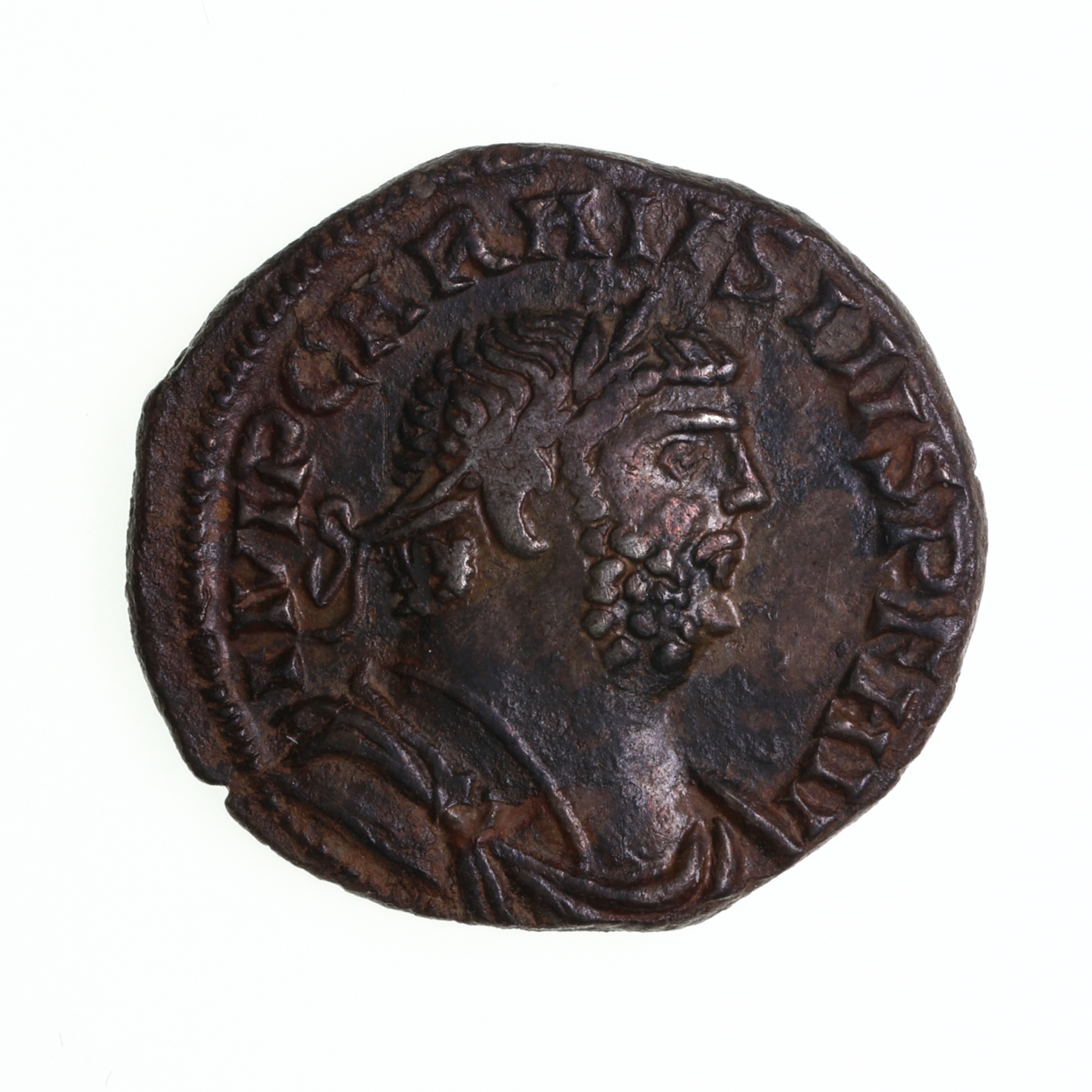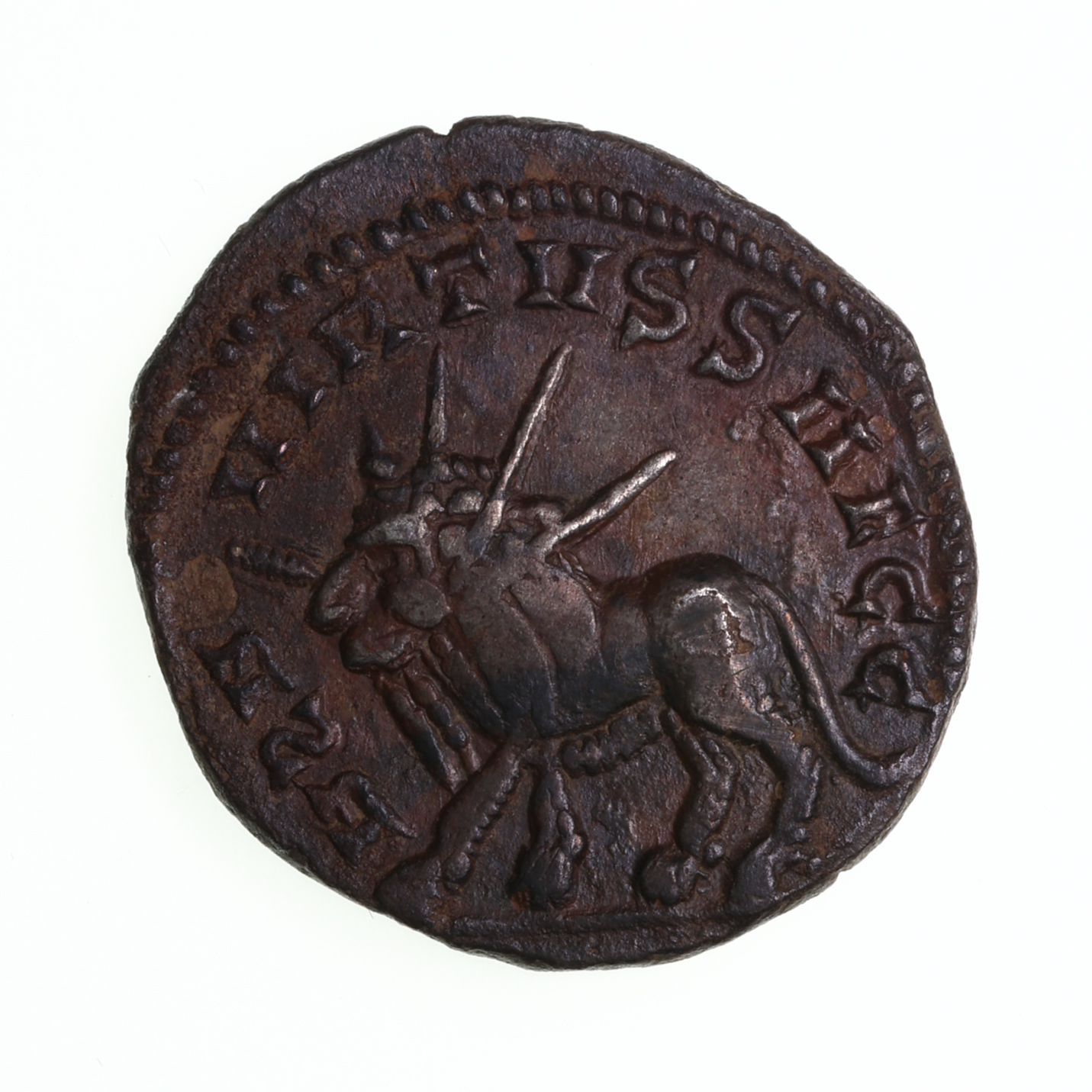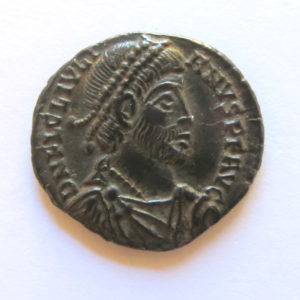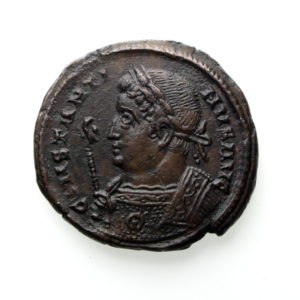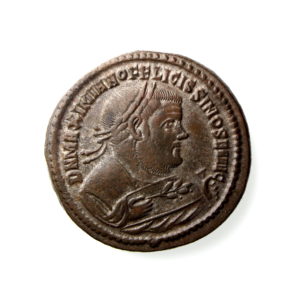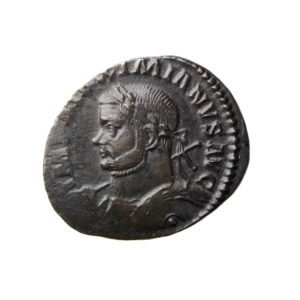Carausius AD 286-288 Silver Denarius RSR Mint – Lion with thunderbolt
£6,780.00
Carausius AD 286-288 Silver Denarius
IMP CARAVSIVS P F AV around laureate, draped and cuirassed bust of Carausius right
Rev. VIRTVS SAEC C around radiate lion advancing left, thunderbolt in mouth
Mint mark ‘RSR’, reversed before lion
3.11g/4h (RIC V.5 173 note, this coin; Shiel 92-93 var.)
Recorded with the Portable Antiquities Scheme Record ID: DOR-0104FC – ROMAN coin
Carausius (Usurper) AD 286-293
The Roman Empire degenerated into crisis and chaos from around AD 235 as the economy floundered and the rule of law broke down. For five decades there was a succession of emperors, usurpers and rebels most of whom were short lived and many of whom were assassinated. Inflation in the empire was rampant. The currency was debased with most of the silver coinage being replaced with bronze. The empire also faced several serious external threats.
In AD 284, whilst travelling back from Persia the emperor Numerian died unexpectedly. The soldiers accompanying the emperor proclaimed their commander, Diocletian, as the new emperor.
Diocletian instituted major reforms to try and save the empire. Since the time of Augustus the emperor had been deemed to be all powerful. By greatly increasing the number of provinces and delegating power down to their governors Diocletian instigated a more collegiate form of government. He also appointed a colleague, Maximian, a co emperor to help him administer the empire. Later this was increased to four thus creating a Tetrarchy.
Little is known of Carausius’ early life although he was of humble birth and was probably a native of Menapia, in modern day Belgium. Carausius chose a military career and by the mid AD 280’s had risen to high command. He appears to have rendered Maximian valuable service by helping put down a revolt by the Bagaudae in Gaul. Following the appointment of Maximian as co emperor in AD 286 Carausius was appointed commander of the Channel Fleet based at Boulogne. Carausius saw this as an opportunity for enrichment by taking booty from the Saxon and Frankish pirates after they had raided rather than preventing the raids in the first place. Instead of ridding the Channel of pirates he moved to Britain where he installed a new fortification system along the coast. He also proclaimed himself Augustus, emperor, setting up a breakaway Imperium Britanniarum. Coinage was issued which depicted Carausius as co emperor and also an equal of Diocletian and Maximian.
Maximian ordered the execution of Carausius but the expedition launched in AD 289 to oust him met with disaster. Carausius was then able to become a major thorn in Maximian’s side extending his rule across the Channel to include parts of Gaul. He was also able to re-establish a naval base in Boulogne. This situation lasted until AD 293 when the newly appointed western Caesar, Constantius, besieged Boulogne which eventually fell. This undermined Carausius authority and shortly afterwards he was assassinated by his chief minister Allectus.
Much of what is known of Carausius is known through his coinage. This was issued from 3 mints. London and Colchester in Britain and later from Rouen in Gaul. By issuing his own coins depicting him as Augustus his authority was enhanced for propaganda purposes. There is an antoninianus where he is depicted along with Diocletian and Maximian as one of 3 co emperors. An important innovation was the introduction of good quality silver denarii coins. These had not been issued for many years and predate by several years the issue of silver coinage by Diocletian. Whilst Carausius is often depicted as being coarse and thuggish the quality of some of his coinage can be excellent.
The inscriptions on his coins include, PAX AVGGG, the peace of 3 Augusti, or RESTITUTOR BRITANNIAE, Restorer of Britain. On his silver denarii the legend EXPECTATE VENI, Come long awaited one. There are also a number of medallions one of which has the reverse legend VICTOR CARAVSI AVG, The victory of Carausius Augustus. By using these legends & promoting the Secular games Carausius was representing a revival of traditional Roman virtues and the traditions of empire that had been instigated by Augustus 3 centuries earlier, sure to increase his popularity amongst the people.
Out of stock

